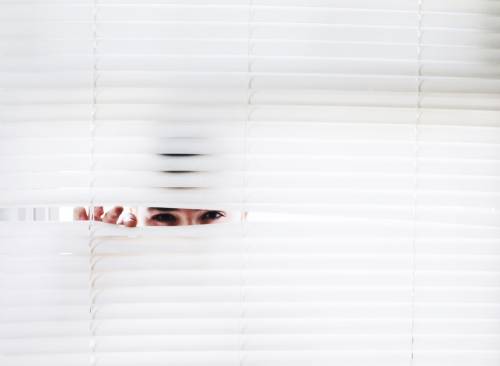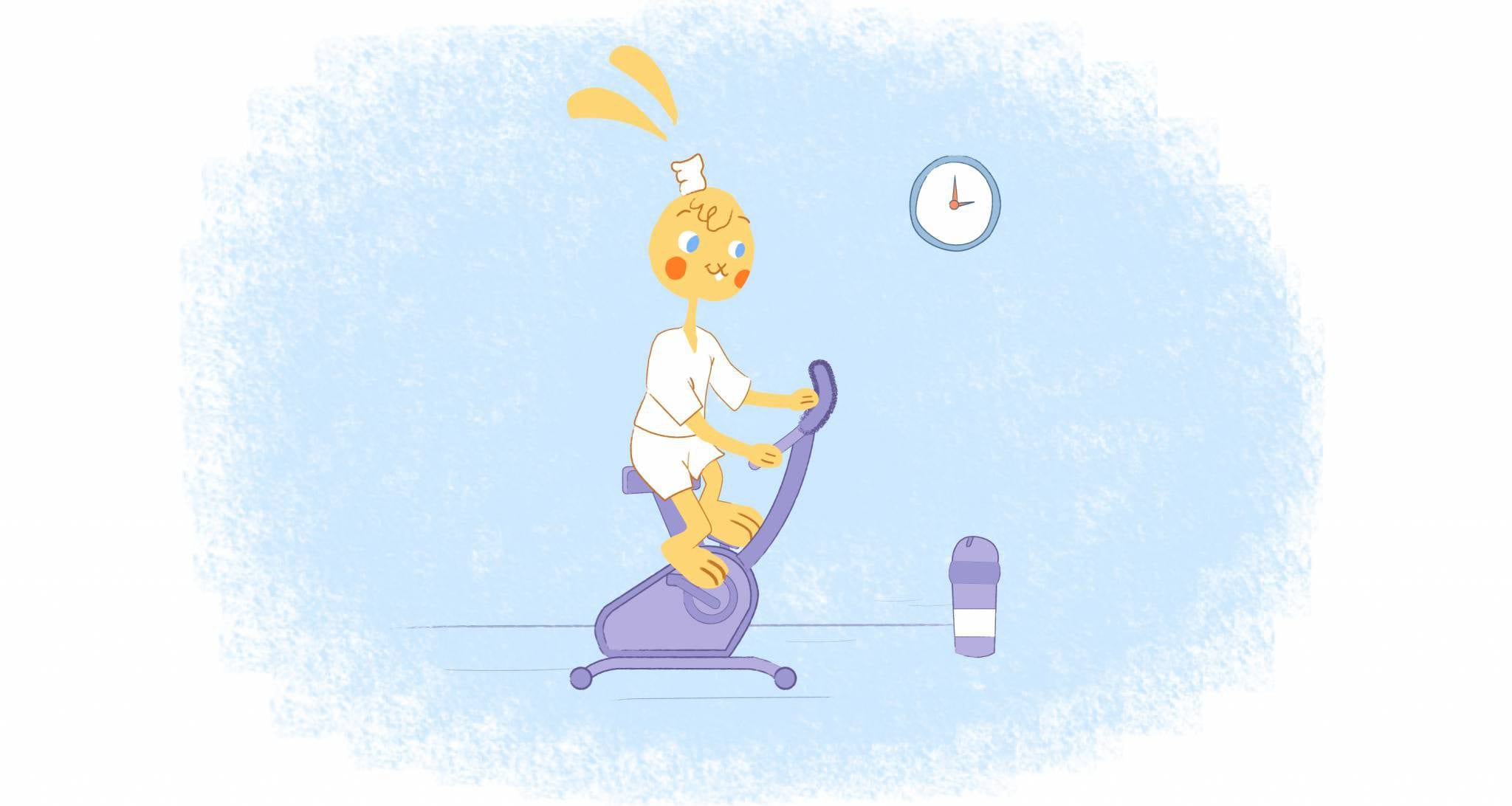

Even before COVID-19 put remote work in the spotlight, numerous studies highlighted its benefits. For years, flexible work arrangements have been able to improve the morale and health of employees. As a consequence, they’re more productive. What’s more, for businesses, remote work can attract and retain talent and reduce the cost associated with real estate and utilities.
At the same time, working remotely also comes with a cost. “For some people, the feedback and encouragement loop of the work environment is critical to their jobs,” explains clinical psychologist Ryan Hooper. Furthermore, if working from home, it can also be more challenging to set boundaries.
“It can be beneficial to get some household chores done in the middle of the workday, like switching laundry or picking up a child from school,” said Cara Maksimow, a licensed clinical social worker and therapist. However, “the lines between work and home can blur and make it hard to ‘turn it off.'” And, if you’re putting in more hours, then that may bleed into family time or even affect your sleep schedule.
Right now, we are all in the “remote team” giving us a lot of empathy concerning many issues. If you have been the remote team — you already know all about the issues. If you are a newly remote leader, you have likely learned that your remote team needs more contact than you had previously thought.
But that’s not all. “Remote workers often experience symptoms of anxiety and depression at a higher rate than people commuting into traditional office spaces,” reports Dr. Amy Cirbus, Ph.D., LMHC, LPC, and Manager of Clinical Quality at Talkspace. “Specifically, they report feelings of isolation and loneliness and high rates of worry about job performance and stability. Insomnia and sleep disturbance are common, along with increased fatigue, irritation, sadness, and feelings of disconnection.”
“Remote workers report a lack of concentration and focus that can compound and exacerbate these mental health challenges,” adds Dr. Cirbus. “It can lead to a loss of self-worth and a questioning of one’s abilities.” When combined, “these symptoms can have a significant impact on job performance, job satisfaction, and the efficiency of productive work.”
Thankfully, there are ways that you can maintain your mental health when working remotely. And here are ten of your best options.
Take breaks strategically.
“There is a tendency to work throughout the day to overcome some stigma that you aren’t working when not in the office,” says David Rabin, vice president of global commercial marketing at Lenovo. While you may assume that that will help you overcome your guilt, the truth is that doing so will only burn you out.
In fact, according to author and productivity expert, Julie Morgenstern, “Stepping away for breaks are part of productivity; they make you smarter and give you perspective and answers.”
When just starting, this may seem impossible. But, it’s possible if you try out some basic, but effective, time management techniques like:
- Tracking your time in 15-30 minute increments. The reason? It will help you “get a realistic picture of how efficient you can work.”
- Plan a realistic schedule in advance. That means not overbooking yourself and only scheduling what you can realistically get done in a day.
- Plan around your energy levels. Schedule your most important or challenging tasks when you have the most energy and focus. Plan to take breaks when your energy drops.
- Avoid pointless meetings. Never accept unnecessary meetings. Or, consider alternatives like phone conferences.
- Create gaps in your calendar. Instead of working nonstop from sun up to down, leave blanks in your calendar to address emergencies or take a break.
Upgrade your office.
Unless you don’t have the extra space, you need to work in a dedicated work area. Ideally, that would be somewhere that’s quiet and inspiring. Or, in other words, somewhere other than your couch, kitchen table, or bedroom.
After identifying this spot, set it up so that it’s not only functional but can also lift your spirits. At the minimum, this means investing in ergonomic furniture and having the right tools. You should spruce the place up with plants, painting your walls with a color that matches your job, and surrounding yourself with personal items.
Spend time outside.
It’s been proven time and time again that getting out into nature is a simple and effective way to reduce stress, anxiety, and depression.
“When people are depressed or under high levels of stress, this part of the brain malfunctions and people experience a continuous loop of negative thoughts,” says Dr. Jason Strauss. Getting outside can counter this thanks to therapeutic benefits like calming nature stress. “Having something pleasant to focus on like trees and greenery helps distract your mind from negative thinking, so your thoughts become less filled with worry,” adds Dr. Strauss.
Socialize.
“Don’t equate “remote worker” with ‘hermit,” writes Beth Braccio Hering. “Connecting with others eases loneliness that sometimes comes with remote work, lifts spirits, and generates a sense of belonging.”
“Look for regular ways to get a ‘people fix,’ perhaps by volunteering, taking a class, spending some days at a coworking space, or setting a weekly lunch date with friends,” she adds. “Likewise, keep in touch with others from your company through emails, video chats, and social platforms as a reminder that you’re part of something larger than your own home office.”
Another option? Foster or adopt a dog — if you don’t already have one. Dogs have been found to improve your mood, lower your stress, encourage you to be healthy, and make you feel loved. Oh yeah. Your four-legged friend also gives you some much-needed companionship.
Get moving.
As I’m sure you’re well aware, physical activity releases endorphins and other feel-good chemicals. But how much should you exercise?
Well, the U.S. Department of Health and Human Services states that those who exercise for 30 to 60 three to five days a week should suffice. Don’t have the time to squeeze in a workout? Even going for a short walk can improve your mood.
Take an “unsick” day.
Piloted by the folks over at Buffer, an “unsick” day is where you simply take a day off from work to take care of preventive appointments. These include visiting the dentist, taking a vision exam, and your annual physical. However, sometimes you may just need to take the occasional day off from work.
Keep stress at bay.
“Research tells us that stress overload not only intensifies symptoms of mental illness but can trigger relapses in individuals who are symptom-free,” says Deborah Serani, PsyD, a clinical psychologist and author of Living with Depression: Why Biology and Biography Matter along the Path to Hope and Healing.
The easiest way to achieve this is by taking care of yourself, like reducing stress-inducing events, not neglecting your health, and finding ways to decompress. “I generally take breaks out of the house — like a short walk, eating lunch on the patio, or just resting in a pool of sunshine on the sofa in my office,” says Serani.
Think about planning your next vacation when we are out of the COVID mess.
Wear your “happy” clothes.
Sure. You could stay in your pajamas all day. But, that’s not going to help your productivity. And, more importantly, it’s not going to put you in a good mood.
“For those who are new to working from home, there is certainly an art to being able to remain focussed and productive in a space which is inextricably linked with comfort and relaxation,” explains Charlotte Armitage, a media and business psychologist at YAFTA. “The key to ensuring a level of productivity in the home is to create a routine and structure that you force yourself to stick to.”
“One of the easiest and simplest parts of a routine to implement is ensuring that you change out of your PJs and into different clothes for working in,” she says. “When the routine of getting changed into new clothes for working at home is practiced enough, psychologically, you become conditioned to associate the changing of clothes with a change of mindset, psychological pace and focus, therefore preparing you for the working day ahead.”
Moreover, getting dressed is an easy way to improve your mental health.
“Routine is important for maintaining our mental health, and getting dressed is an important part of that routine,” she says.
“The idea of staying in PJs all day has some negative connotations associated with it, and therefore if we behave that way, we can start to feel lazy and demotivated which in turn leads to a lack of productivity and low activity levels, and consequently starts to create a negative vicious cycle.”
And, if you want to go a step further, dress yourself — happy — by looking into dopamine dressing.
Set parameters.
“Separating your work and home life is almost certainly the biggest challenge of working from home,” writes my Calendar co-founder John Hall. “It’s all too easy to go back to work after dinner or start working the second you wake up.”
“An unstable schedule or unplanned calendar happens more often with freelancers or people who make their own schedules,” adds Hall.
“While dedication is important, overworking will cause you to burnout,” he states. “Know the signs, and give yourself frequent breaks. Listen to friends and family if they suggest you’re working too much.”
Remember, working from home is a privilege. “Take it seriously, and you’ll take your productivity to new heights.”











John Hall
John Hall is the co-founder of Calendar a scheduling and time management app. He’s also a keynote speaker that you can book at http://www.johnhallspeaking.com.